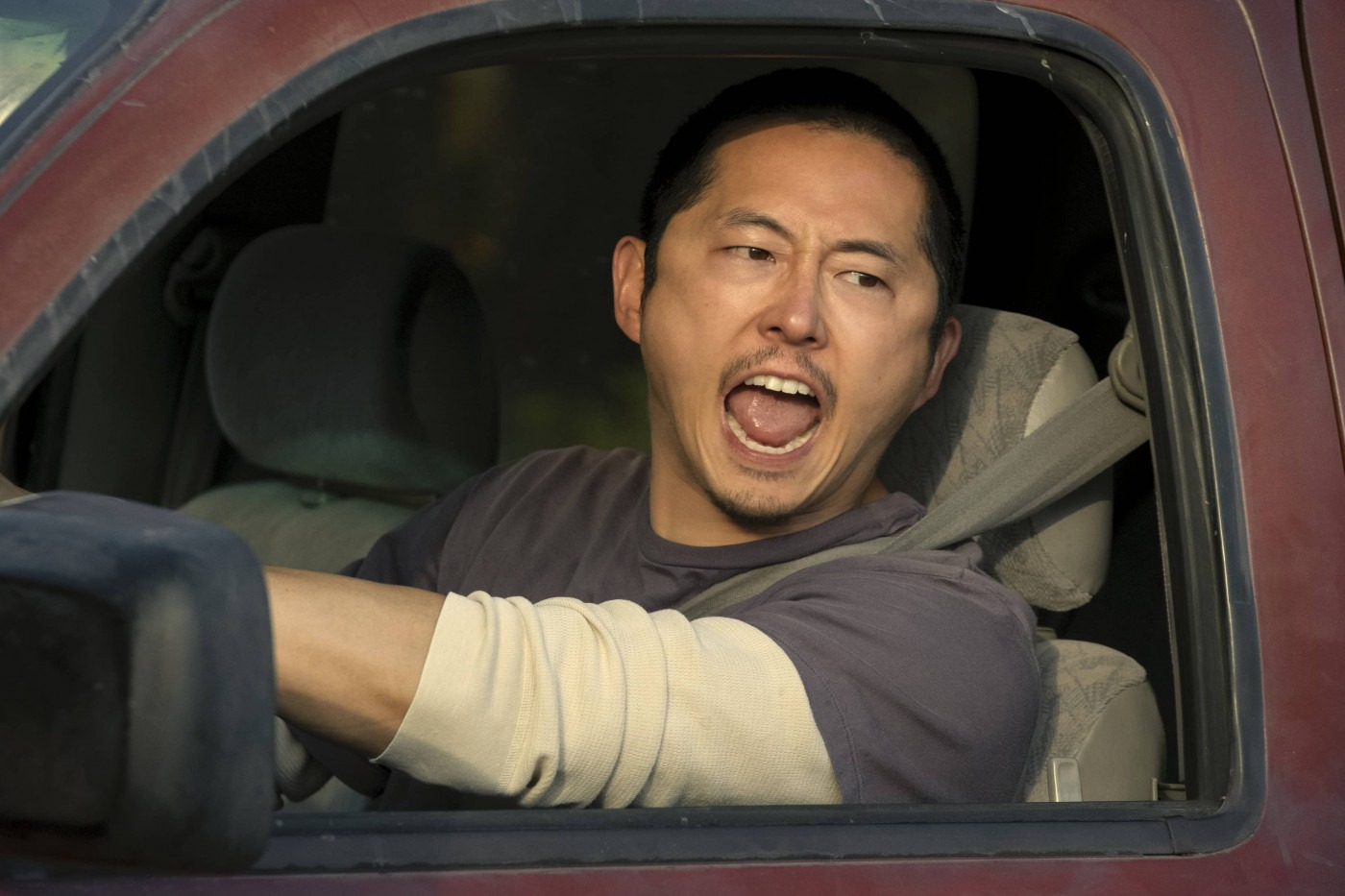BEEF’s meaty drama sets industry standard
Steven Yeun, main star and executive producer of BEEF, was right on the mark when he said “there’s nothing really more intimate than fighting.” And so, despite their best efforts, Danny and Amy’s grotesque revenge odyssey ultimately brings them together. It’s an intimacy that pierces through our shared congealed layers of angst, sadness, and dissatisfaction that so many other shows have tried and failed to address. And BEEF, with its sharp social commentary and performances, does so in such heart-breaking and hilarious fashion that it earns a spot among 2023’s absolute best.
Danny (Steven Yuen) and Amy (Ali Wong), wildly different in persona and economic background, both share a real struggle to find fulfilment with their lives in Los Angeles. Danny is an angsty, depressed contractor, struggling to run what appears to be a shrivelling freelance business. The 2nd generation Korean immigrant is constantly burdened to provide for himself and his brother, and even dabbles in illegitimate work with his cousin Isaac (David Choe). Choe is a highlight of the show, by the way, with a bombastic personality and laugh-out-loud line delivery working to detach BEEF from the vanilla, stereotypical Asian-American story. Sitting 180 degrees to Danny’s rough-around-the-edges appearance and attitude is Calabasas queen, Amy. Trying ever so hard to convince herself she’s content with her picture-perfect life – the modern mansion, Mercedes, and million-dollar plant business – Amy can’t shake the suffocating feeling of longing and unfulfillment that seems to seep into every crevice of her life.
These are painfully accurate portrayals of the fake-smile types that plague the Californian middle class, and perfect personifications of a world that talks but never listens
Danny and Amy are clearly aching to be seen and heard, and BEEF has excelled in constructing a world where they have no choice but to bottle up their grievances. That is, until they can’t. BEEF’s Los Angeles is a vibrant, hollow community defined by can-we-reschedules and sudden, awfully convenient “work emergencies”. Every social sphere Danny and Amy attempt to break into is met with either a wall of hair-pulling California-esque toxic positivity or loaded comments and micro-aggressions. These are painfully accurate portrayals of the fake-smile types that plague the Californian middle class, and perfect personifications of a world that talks but never listens. It borders on satire, but still feels very real. Bravo, I say.
So, on the verge of a breakdown in his truck after failing to return the hibachi grills he had planned to use to kill himself via carbon monoxide poisoning, Danny nearly backs into Amy’s car as he’s pulling out the parking lot. And Amy, flipping him off, honking from her white Mercedes, is the straw that breaks the camel’s back. It takes all of 10 seconds for Danny, sick of being the world’s doormat, to fill the hole in his life through an absurd revenge vendetta on Amy. And Amy, furious at the pettiness and gall of Danny’s anger, finds the same.
The lessons both characters therefore undergo have created room for some of the most nuanced, thought-provoking concepts I’ve seen on TV in years
Amy and Danny are broken people – so empty and angry at the world that they’re willing to let a minor inconvenience send their life on a complete spiral. It’s this process of exploring mental health that has had many people praise the show for its portrayal of depression – the idea one will settle for anything, even hatred and spite, to keep them from addressing how they truly feel. This is nothing new in film and TV, but BEEF’s approach is an absolute masterclass: Amy and Danny seem to naturally take every opportunity to give into the temptation of self-destruction and rage. The lessons both characters therefore undergo have created room for some of the most nuanced, thought-provoking concepts I’ve seen on TV in years.
Hating is easy, sure. Self-reflection is hard. But the way BEEF answers why that is so is what makes it such good storytelling. Specifically, when Danny and Amy have no sense of purpose, belonging, or fulfilment, their affinity for revenge becomes their primary driver, and so they face head on the question of “how do we deal with anger?” In answering that, both characters must strip themselves to the bones and address their burdening of others, sense of responsibility, empathy, and inability to be happy with their lives and themselves. The moment they both achieve that, hand-in-hand, is a realisation that their paralyzing afflictions of anger and despair might just be a symptom of their humanity, both in harmony and melancholy acceptance that life’s joys are defined by its tribulations, and that the human condition is as fragile as it is infuriating. As Ram Dass puts it, “we’re all just walking each other home”.

Comments